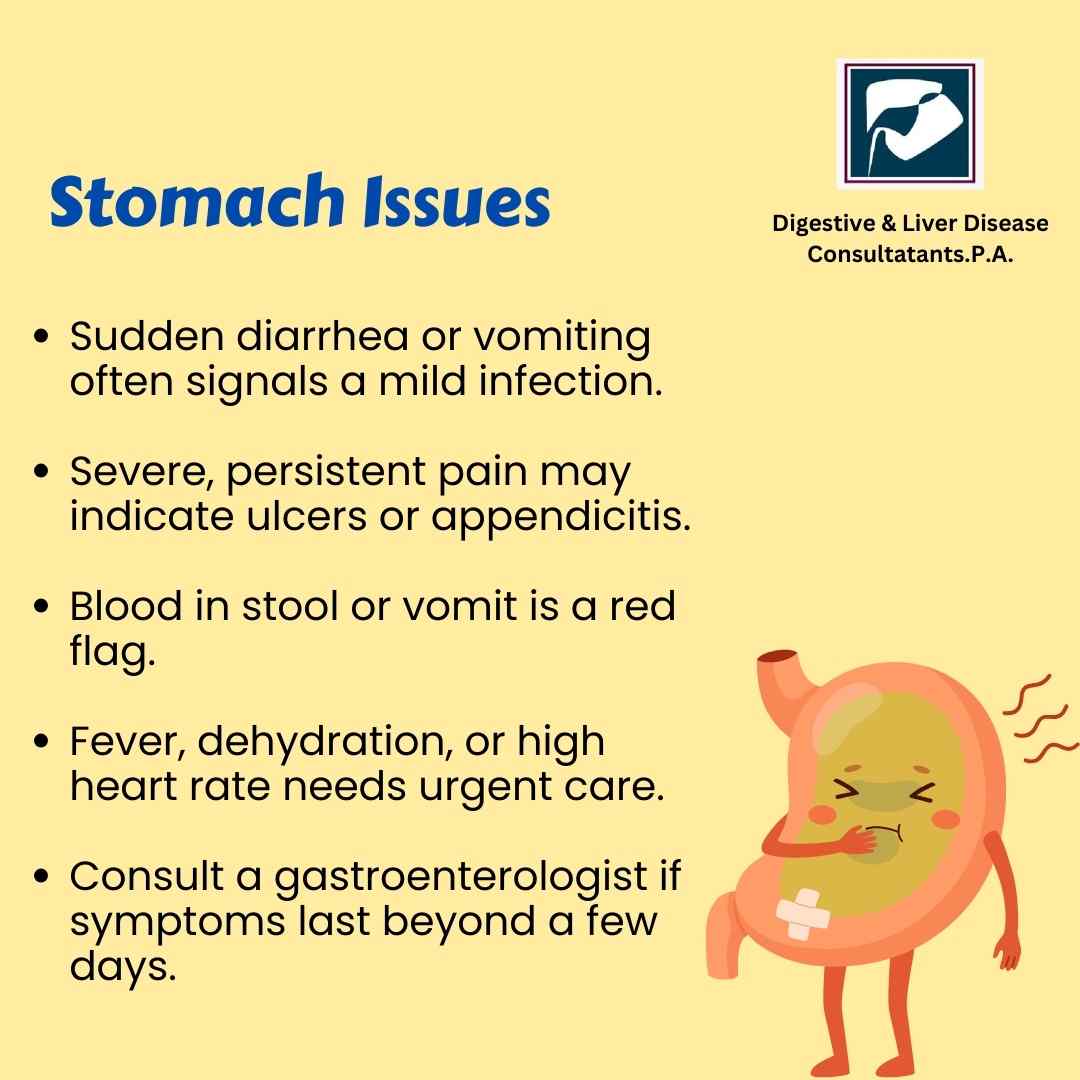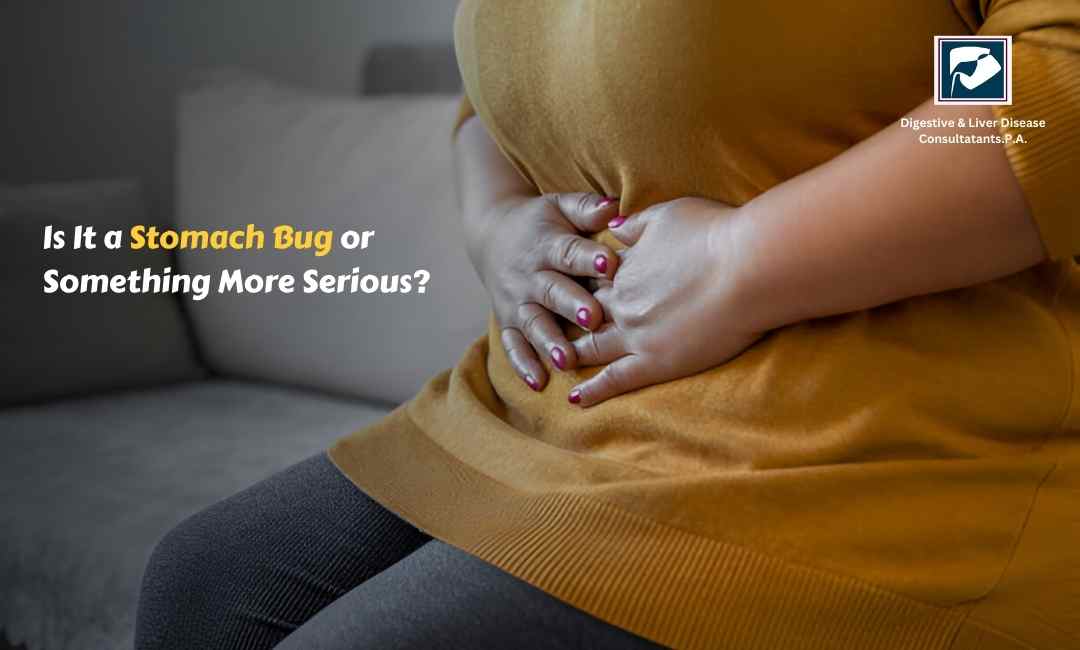We’ve all been there. You wake up with stomach cramps, nausea, maybe even diarrhea, and you instantly think it’s just a “stomach bug.” In most cases, that’s true. Stomach bugs, also called viral gastroenteritis, are very common and usually go away on their own. But sometimes, what feels like a simple stomach bug may actually be a sign of something more serious.
So how do you know the difference? Let’s take a closer look at the symptoms, causes, and warning signs you shouldn’t ignore.
What is a Stomach Bug?
A stomach bug is usually caused by a virus that affects your digestive system. The most common culprits are norovirus and rotavirus. These viruses are highly contagious and spread quickly through food, water, or contact with an infected person.
Typical symptoms of a stomach bug include:
- Nausea and vomiting
- Diarrhea
- Abdominal cramps
- Mild fever
- Fatigue
Most people recover within a few days with rest, fluids, and light meals.

When It Might Be Something More Serious
Sometimes stomach discomfort is not due to a viral infection at all. Conditions like food poisoning, irritable bowel syndrome (IBS), inflammatory bowel disease (IBD), ulcers, gallbladder disease, or even liver problems can mimic the same symptoms as a stomach bug.
Here are a few red flags to look out for:
1. Symptoms Last Longer Than a Few Days
If diarrhea, vomiting, or pain lasts more than three days, it could be more than just a virus. Persistent symptoms may point to foodborne bacteria, parasites, or an underlying digestive condition.
2. Severe Abdominal Pain
A stomach bug usually causes cramping, but if you experience sharp, severe, or ongoing pain, it could signal appendicitis, gallstones, or pancreatitis.
3. High Fever or Chills
A mild fever is common with viral infections. But a high fever (over 102°F) with chills may suggest a bacterial infection that requires medical treatment.
4. Blood in Stool or Vomit
This is never normal and should be taken seriously. It could indicate gastrointestinal bleeding, ulcers, or inflammatory bowel disease.
5. Dehydration
If you’re unable to keep fluids down, feel dizzy, or notice dark urine, dehydration can become dangerous quickly. Medical attention is needed right away.
6. Recurrent or Chronic Digestive Issues
If stomach problems keep coming back or last for weeks, conditions like IBS, celiac disease, or Crohn’s disease may be the cause.
Common Conditions That Mimic a Stomach Bug
Understanding some of the digestive disorders that look like a stomach bug can help you recognize when to see a doctor.
- Food Poisoning: Caused by contaminated food or water, symptoms can appear quickly and may include severe diarrhea and abdominal pain.
- Irritable Bowel Syndrome (IBS): This chronic condition often causes cramping, bloating, diarrhea, or constipation.
- Inflammatory Bowel Disease (IBD): Crohn’s disease and ulcerative colitis are long-term inflammatory conditions that can lead to serious complications if untreated.
- Gallbladder Problems: Gallstones can trigger sudden, sharp pain in the upper abdomen, often after eating fatty meals.
- Peptic Ulcers: Ulcers in the stomach lining can cause burning stomach pain, nausea, and indigestion.
- Liver and Pancreatic Issues: Conditions like hepatitis or pancreatitis may cause abdominal pain, nausea, and digestive distress.
How to Take Care of Yourself at Home
If you believe you have a simple stomach bug, most people recover with basic care. Here are some helpful tips:
- Drink plenty of fluids like water, clear broth, or electrolyte solutions.
- Eat bland foods such as rice, toast, bananas, or applesauce.
- Avoid alcohol, caffeine, dairy, and greasy foods until you feel better.
- Rest as much as possible to allow your body to fight off the infection.
When to See a Doctor
You should seek medical care if you experience:
- Severe abdominal pain that doesn’t go away
- High fever or chills
- Blood in stool or vomit
- Symptoms lasting more than three days
- Signs of dehydration (dizziness, very little urine, dry mouth)
- Frequent or chronic digestive issues
Getting checked early can prevent complications and help you get the right treatment quickly.
How Digestive & Liver Disease Consultants, P.A. Can Help
At Digestive & Liver Disease Consultants, P.A., we understand that not all stomach problems are simple stomach bugs. Our experienced team of gastroenterologists provides comprehensive care for a wide range of digestive disorders. From diagnosis to treatment, we use advanced technology and patient-focused care to get to the root of your symptoms.
Our services include:
- Diagnosis and treatment of gastrointestinal infections
- Screening for conditions like IBS, IBD, ulcers, and liver disease
- Endoscopic procedures for accurate evaluation
- Personalized treatment plans for long-term digestive health
With years of expertise and a compassionate approach, our team is dedicated to helping you feel better and live healthier.
Conclusion
A stomach bug is usually nothing to worry about, but sometimes your symptoms could point to something more serious. Knowing the warning signs and listening to your body is key. If your discomfort lasts longer than expected or is accompanied by severe symptoms, don’t ignore it.
If you suffer from persistent stomach issues, don’t wait. Contact Digestive & Liver Disease Consultants, P.A., today to schedule a consultation with one of our gastroenterology specialists.






